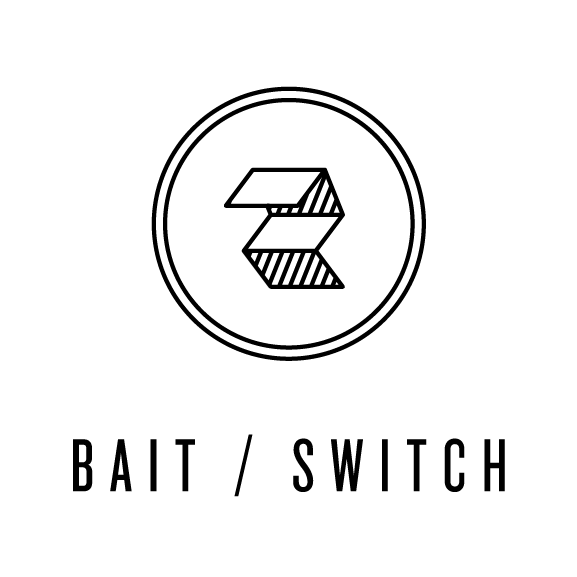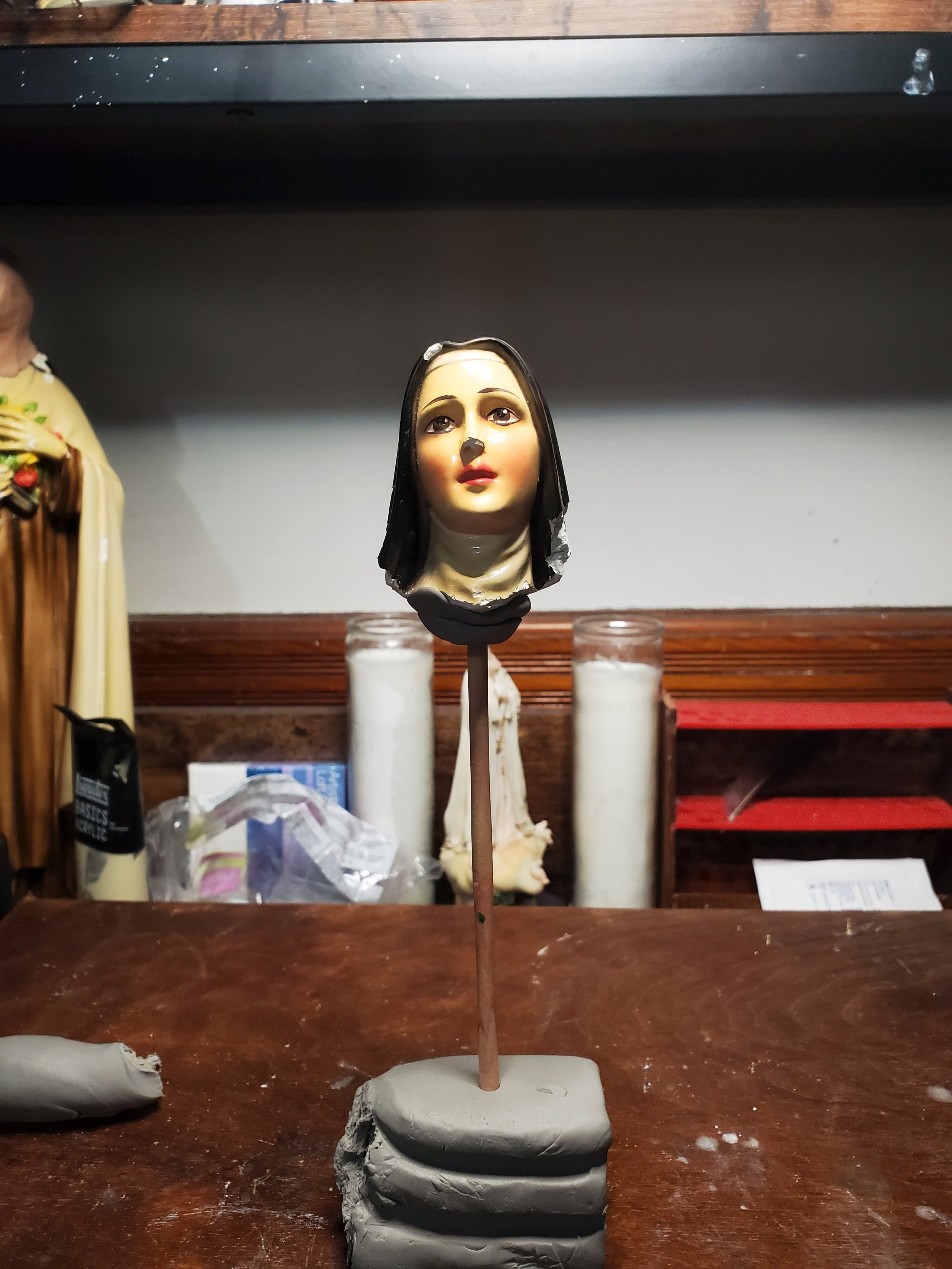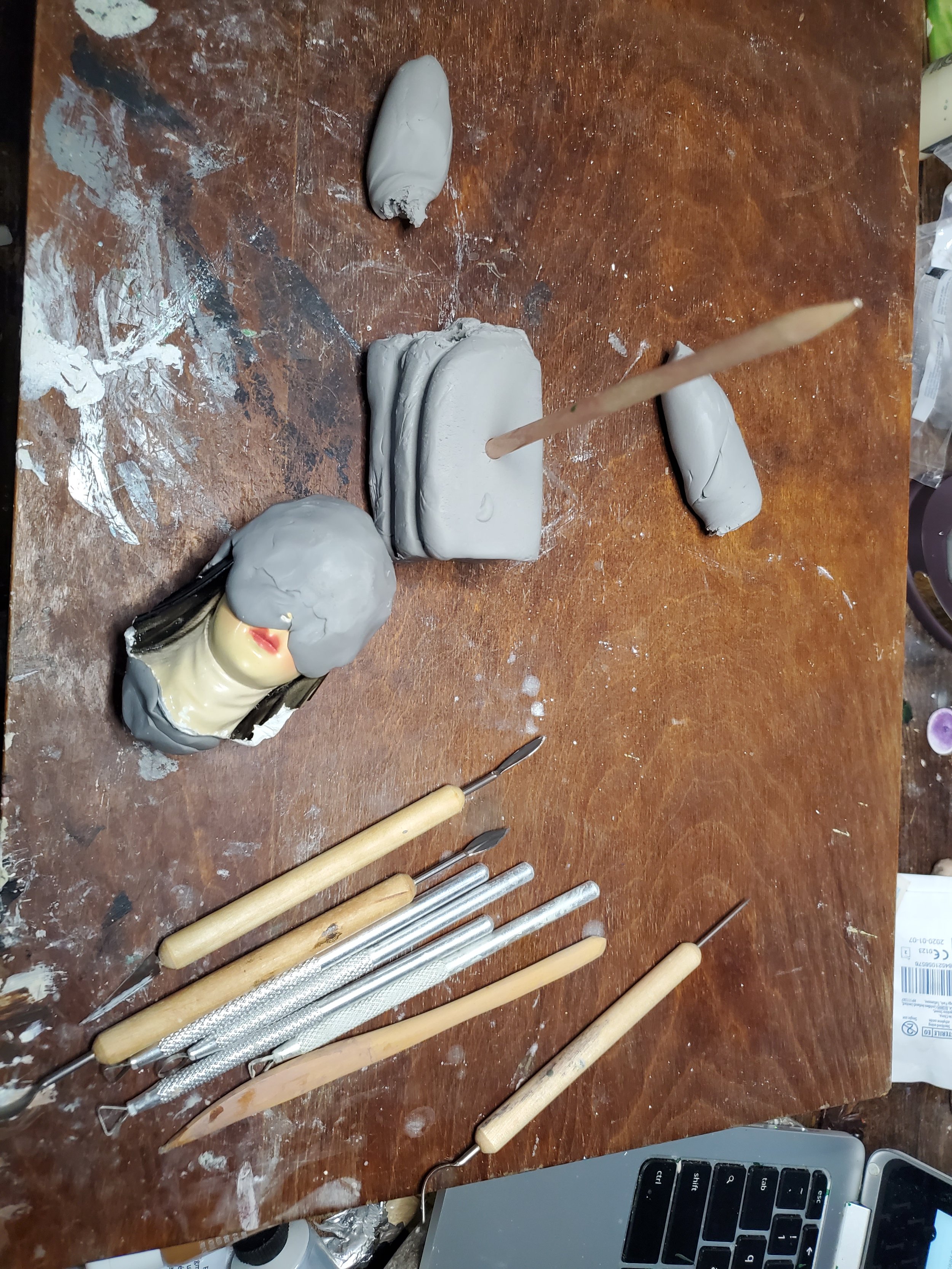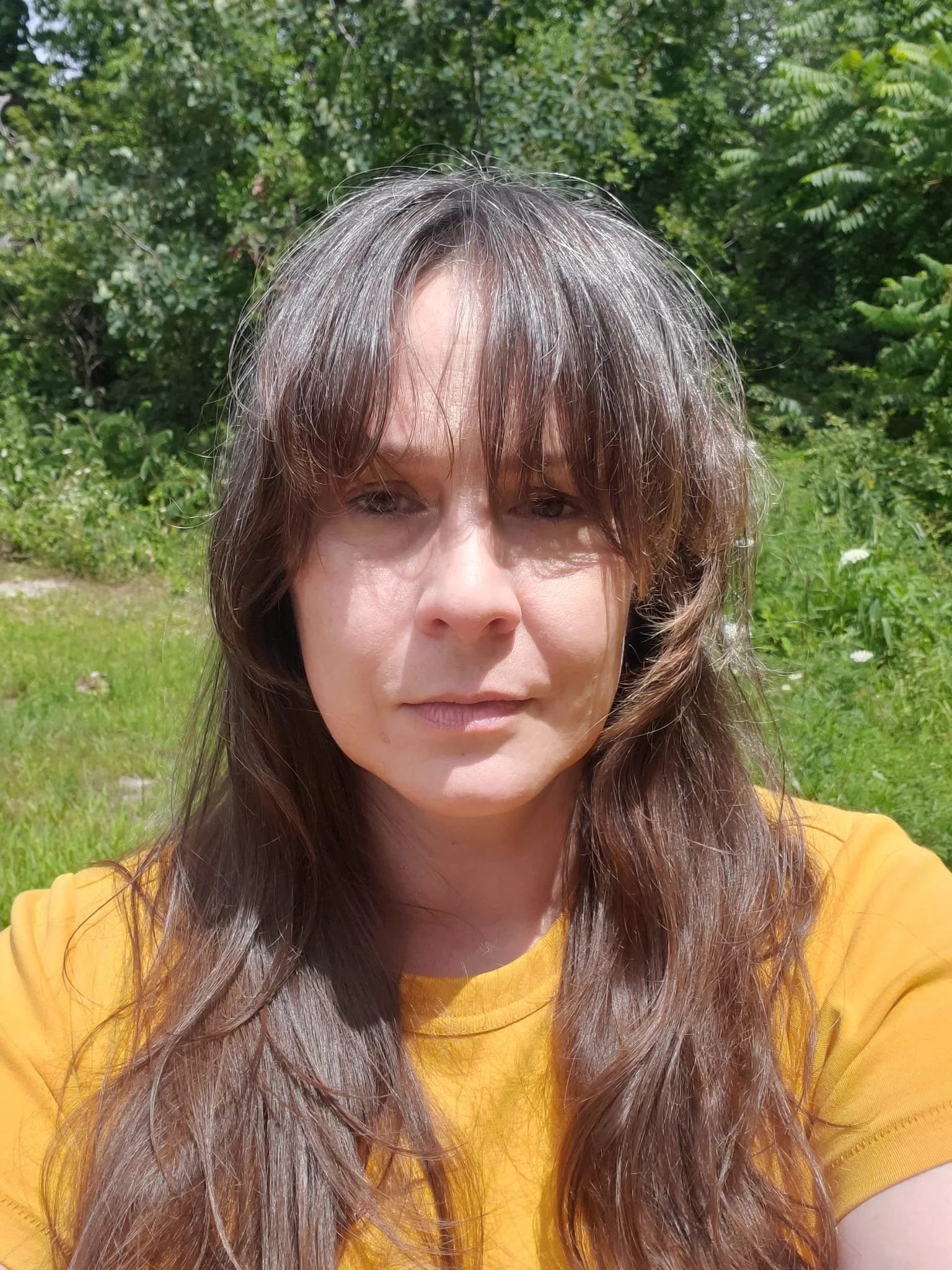The Diminished Wild Boar
Brooke Welty
“Well done! Good job! Your prize for what we’ve turned you into is we’re going to lop your head off and eat.”
Interview by L. Valena
July 5, 2022
Let's start from the top. Could you please start by describing the prompt that you responded to?
It was an image of a guy, nude in a bathtub, covered with cartoony pictures of pigs eating cake. It was *interesting*. Honestly, I looked at it and thought, “What the hell am I going to do with that?” [laughs] Then, looking more closely at the expressions of the pigs and the details of the pictures, I started thinking about consumption. The act, not the disease. That’s what it brought to mind. It just looked like gluttonous consumption to me.
Where did you go from there?
From there, I started thinking about the pigs and where they came from, which are wild boars. Boars were revered in pre-Christian societies, for strength and fierceness and family. I actually did a work some months back where I sculpted a wild boar head onto a Jesus as a reminder that they were once well respected animals. Anyway, they've since been reduced and distilled into this idea of fat, lazy gluttony, and it's a shame because boars are really neat animals. I then got to the idea of trying to convey what the boar has sort of been distilled into: this sad thing which just exists for us to consume. They're still incredibly smart and really social and very affectionate animals, but we just see them mainly as a source for food.
I see there's this little hat that says “Congrats,” there's a little tag… Can you say more about what's going on in this work?
Yeah! His little ear tag is of course his livestock tag. All the pigs in the picture that I was responding to had party hats on, which I thought was kind of funny, so the hat is just a little bit of a dark sense of humor from me. We celebrate them now as just an object of consumption instead of what we used to regard boars as, really. The “Congrats” sort of an ultimate irony of the pig in their situation in life now.
As in, “Congratulations, you made it!”
Yes! “Well done! Good job! Your prize for what we've turned you into is we're going to lop your head off and eat.”
So interesting. We think of them as these fat, happy, lazy, dirty things, but I've heard that if they're let loose, they actually can “devolve” into wild boars pretty fast!
They do! In just a few generations, which is really interesting. In Britain, there are rewilding efforts in some areas, so boars are being reintroduced to places. There's a project called the Tauros Programme, which is trying to remake the aurochs, the ancestor of domestic cattle. It was this massive, wild thing. And there are moves to reintroduce into parts of Britain more foxes, wolves, things that used to be there but then got pushed out by people.
So, this sculpt is not hugely nuanced, it really is just at its face. “Look at the poor thing that wild boars have been diminished to.” One of the process pictures is of a saint’s head on a stick. That's what I built it up around because I just had a head laying around which I took off of another statue. She's going to be a hare eventually.
This saint’s head is inside that boar’s head?? Wow! That is amazing.
I like to reuse them. On a technical level, when you use that kind of clay, which is an oven-baked polymer clay, if it's too thick, it'll crack. You want to use foil or something on the inside. So I just use those.
This is great! I am so into this. How does this relate to the rest of your work?
Most of what I do is take Catholic statues, specifically those statues that they put onto altars and decorate. They’re absolutely fascinating to me. I take those and revert them into pre-Christian ideas. You know, animism, having animals and nature symbols embody divine things rather than people, a general reverence for the natural world.
I really love and am influenced by British folklore. It's probably because I'm married to one. [laughs] I think that’s where it started. People think of the British as very proper, you know, the Queen and drinking high tea. But they're weird! And they have a lot of weird calendar rituals all year long, like dancing around with a horse skull with a hood on it and making these big floral decorations for Holy Wells. All kinds of weird stuff tied to things like the harvest and solstices, that sort of thing. They just carry on with it, which I love. I think it’s great. So that really is a big influence on what I do. It's really fascinating to me.
That’s so cool. I think that the idea of these calendar rituals, the paganism that underpins a lot of that stuff, the Wheel of the Year… it really roots people in time in a way that we're not used to anymore. For example, the fact that people expect to be able to get bacon year-round.
Yes!
Right now, we believe that we should be able to get whatever we want within a 24-hour delivery. It seems like we've gradually moved further and further away from the natural cycles and rhythms that seem to really enrich human life.
They do! And I love them. One aspect I find particularly interesting are some of the modern British practices, like Morris dancing for instance. People will think of the guys with the little sticks and whatever. And that does not necessarily have an ancient, Pagan root. I think it actually came about in Tudor times, but now it's taken on a life of its own. A lot of the people who do it now are emphasizing the folk ritual of it, tied to the land and the Britishness of it all. Things take on their own meaning that I think people need them to.
I like that. I think that meaning-making is really interesting and I totally have a huge crush on that deconstructivist, “anything can mean anything” sort of attitude.
There was a period of time, maybe 1,800/2000/3000 years ago, when people weren't necessarily doing these complicated, vast, mysterious rituals that we like to romantically imagine, but they would mark the year, mark the calendar. I think people just want to get back to the simplicity of that relationship with the land and the year and the time and the broader picture of things.
You're so right. And I think it's interesting that the language we tend to use is “getting back to” something, when we haven't had a lot of these things for a long time. It's been so many generations that we really have to dig deep into our collective memory.
You have to make it over again, really. One of the things that always kills me is when I see girls with, you know, “We’re the granddaughters of witches...” No, your grandmother was a Methodist! Do the work. Look beyond the aesthetic. You know?
Yes, I know. [both laugh] “We’re the granddaughters of the witches that you couldn't burn.” They were probably the people holding the matches, honestly!
Exactly. I like to paint to every once in a while. It's not really the thing that I love, but sometimes I'll just dick around with painting a little bit. One of the things I currently have in my sketchbook is a painting of some of my other sculptures with words on it, something like, “Nature compels us to make it sacred.” We have to make new rites to do that, and I think that we do that without even realizing that we're doing it, which I love to see. In Britain now, and all over really, there's a big revival and interest in folklore and folk practice. I think a lot of that comes back to wanting to put aside the monotheism and dogmatic religions in favor of the obvious, of what's around us and what we're in and around.
It's so much more complicated than when you really think of everything as sacred. And that makes for more interesting life, I think!
It does! Yeah.
Do you have any advice for another artist approaching this project for the first time?
I would say that I actually surprisingly enjoyed the deadline. I tend to take forever and ever to do something because I keep looking at it, thinking, “Ugh, no, that's not really right… his little eye isn’t set quite right and blah blah blah.” It was fun to have a deadline so I could just say “Fuck it.” I know that it's not a perfectly sculpted, true-to-life pig, but it works. So that was enjoyable. It was nice to let loose a little bit. I just looked at something, popped down the couple of things that came into my head, and went from there. Being unrestricted is nice. And don't worry too much about it. I didn't worry too much about it, which I tend to do.
Good. That's the key, I think.
Call Number: Y81VA | Y84VA.weDi
Brooke Welty lives with her husband and dog in the wilds of Lovecraft country on the North Shore.







